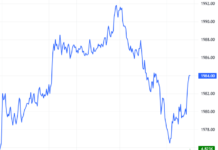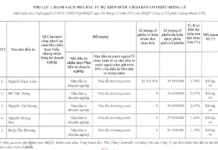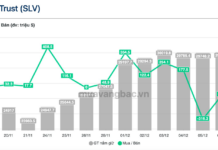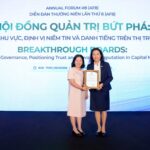While the concept of digital transformation has been around for years, many businesses are still grappling with it. At the Talkshow and book launch event for “Digital Culture – Overcoming Barriers in Digital Transformation,” organized by Alpha Books Joint Stock Company in collaboration with author Le Quang Vu, experts discussed the role of corporate culture, specifically digital culture, in the journey of digital transformation.
BARRIERS SLOWING DOWN DIGITAL TRANSFORMATION IN ENTERPRISES
Mr. Lai Tien Manh, a senior expert in consulting solutions for marketing and branding strategies in Vietnam and CEO of MiBrand, believes that there are numerous barriers to overcome for a successful digital transformation.
In reality, a thorough digital transformation requires businesses to transform comprehensively, from their business models, development of new products, to the implementation of digital services, digital payments, and operations on digital platforms. Only when this entire process is digitized can digital transformation be truly completed.
Many enterprises face “traditional” barriers, meaning traditional ways of working and relying on long-established habits, making transformation difficult. Old work habits cause many businesses to delay digital transformation. According to the CEO of MiBrand, the word “busy” has even become a common excuse for leaders to avoid change, reflecting a lack of commitment to improvement.
Another barrier causing stagnation is that while businesses understand the importance of digital transformation, they don’t know where to start. This is a common issue when businesses want to change but are limited by knowledge, mindset, and ideas.
The third barrier to digital transformation is that enterprises have started to have ideas about digitization but only stay at the level of data and process management on a digital platform without truly embracing digital transformation. In other words, enterprises have started to store documents and files on digital platforms instead of traditional paper-based systems and use software to manage their operations. However, it all stops there, and this process is still just about using tools to support daily activities, not a real digital transformation.
According to Mr. Lai Tien Manh, all this stagnation in implementing digital transformation is related to the lack of digital culture in enterprises. If digital culture were more widely promoted and disseminated, awareness and mindset would naturally transform into action. However, currently, most enterprises have not adjusted their culture to adapt to the new era, where AI technology is playing an increasingly important role.
FOSTERING A “DARE TO FAIL” CULTURE FOR INNOVATIVE CHANGE
Regarding digital culture, Mr. Duong Ngoc Dung, Director of Marketing and Communications at MSB Bank, also believes that one of the critical factors in transformation is corporate culture. To create a culture that encourages people in the organization to embrace digital transformation, MSB’s representative suggests implementing policies that motivate and encourage innovation.

Mr. Duong Ngoc Dung mentioned the “Try – Fail – Fix” method to initially motivate people to accept new things and change themselves.
“In the past, when working towards KPIs set at the beginning of the year, people tended to stick to what was familiar and easiest to ensure goal achievement. But to encourage them to master digital technology, supportive and encouraging policies are needed to dare to try,” said Mr. Duong Ngoc Dung.
“Because sometimes, if we don’t dare to experiment with new solutions, businesses will miss out on potential growth opportunities. Just try, and if it fails, fix it. Through each try-fail-fix cycle, everything will gradually be perfected and improved.”
According to the MSB representative, the “try-fail-fix” approach may seem unrelated to digital culture, but it is very close and intimately linked to digital transformation strategies. The culture of “try-fail-fix,” also known as the culture of “daring to fail,” plays a crucial role for businesses. Some companies even encourage employees to make mistakes—within permissible limits—so they can refine their skills and grow in their roles.
And the culture of “try-fail-fix” or “daring to fail” is also a driving force for innovation. Mr. Le Quang Vu, CEO of Blue C and author of the book “Digital Culture – Overcoming Barriers in Digital Transformation,” believes that in innovation, “it’s important to have the right mindset about mistakes. If we consider mistakes as failures, we easily give up. But if we see mistakes as steps on the path to success, then it’s a whole different story,” said Mr. Le Quang Vu.
Author Le Quang Vu is the CEO of Blue C, a company that provides consulting services on corporate culture, employee experience, and internal communications. He shared, “While AI can change the way we live and work, digital culture remains crucial in shaping how we use technology.”
Asserting that culture will not be eliminated by AI if humans know how to turn technology into a tool instead of letting technology dominate, author Le Quang Vu believes that digital culture is the combination of human core values and the power of technology, creating a new environment where AI becomes a companion, helping humans to be creative and grow.
In the context of technology playing a pivotal role in changing lives and work, the book “Digital Culture – Overcoming Barriers in Digital Transformation” shares the “cultural tools” to help enterprises transform. This digital culture is expected to help all members of an enterprise develop a strong belief, the right mindset, and appropriate behaviors aligned with the process of digital transformation. With digital culture, businesses will create a workforce with breakthrough thinking, generating numerous new ideas, adapting well to internal and external changes, readily accepting feedback, and easily collaborating to create new value. In other words, digital culture helps enterprises gain a sustainable competitive advantage in the digital era.





































